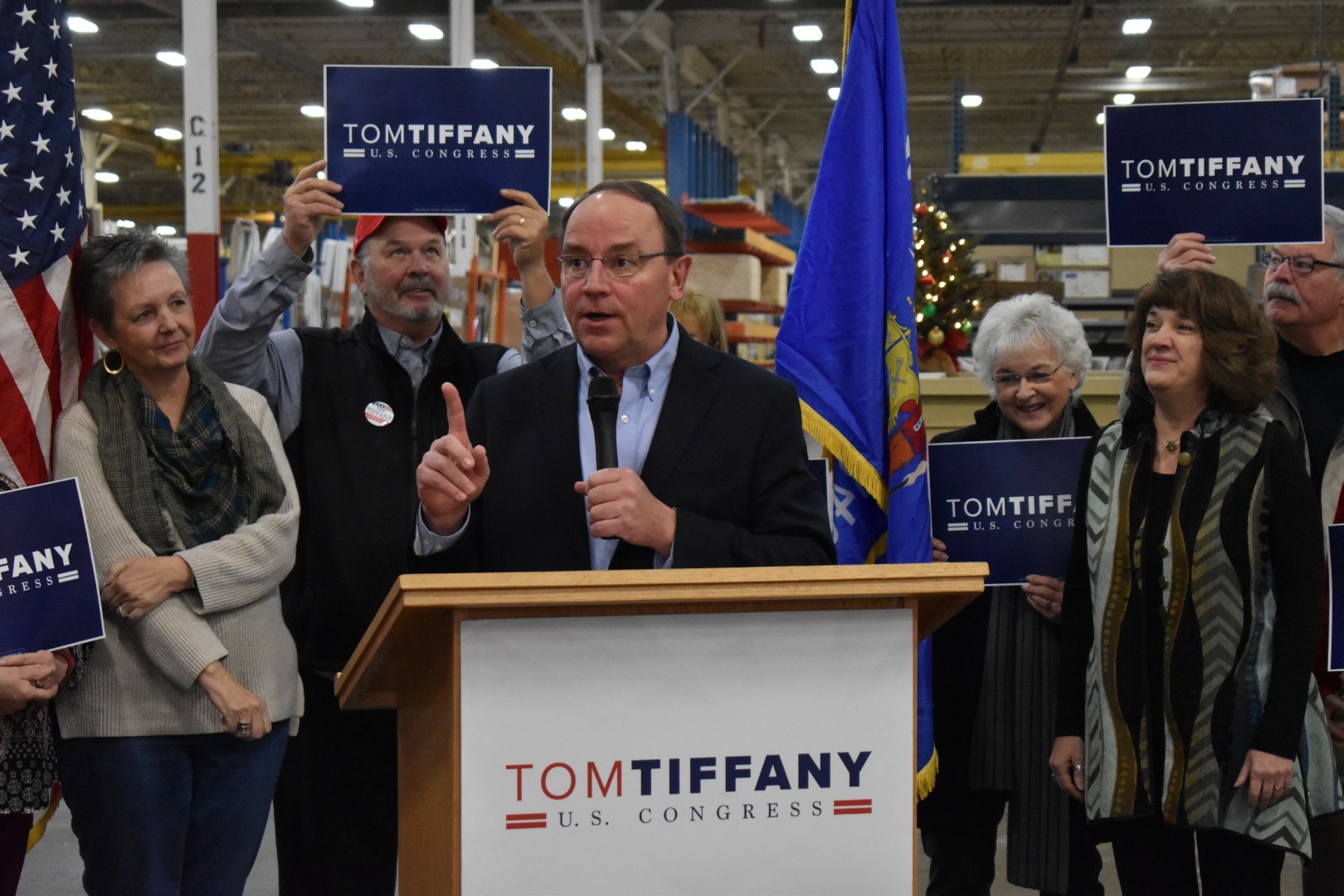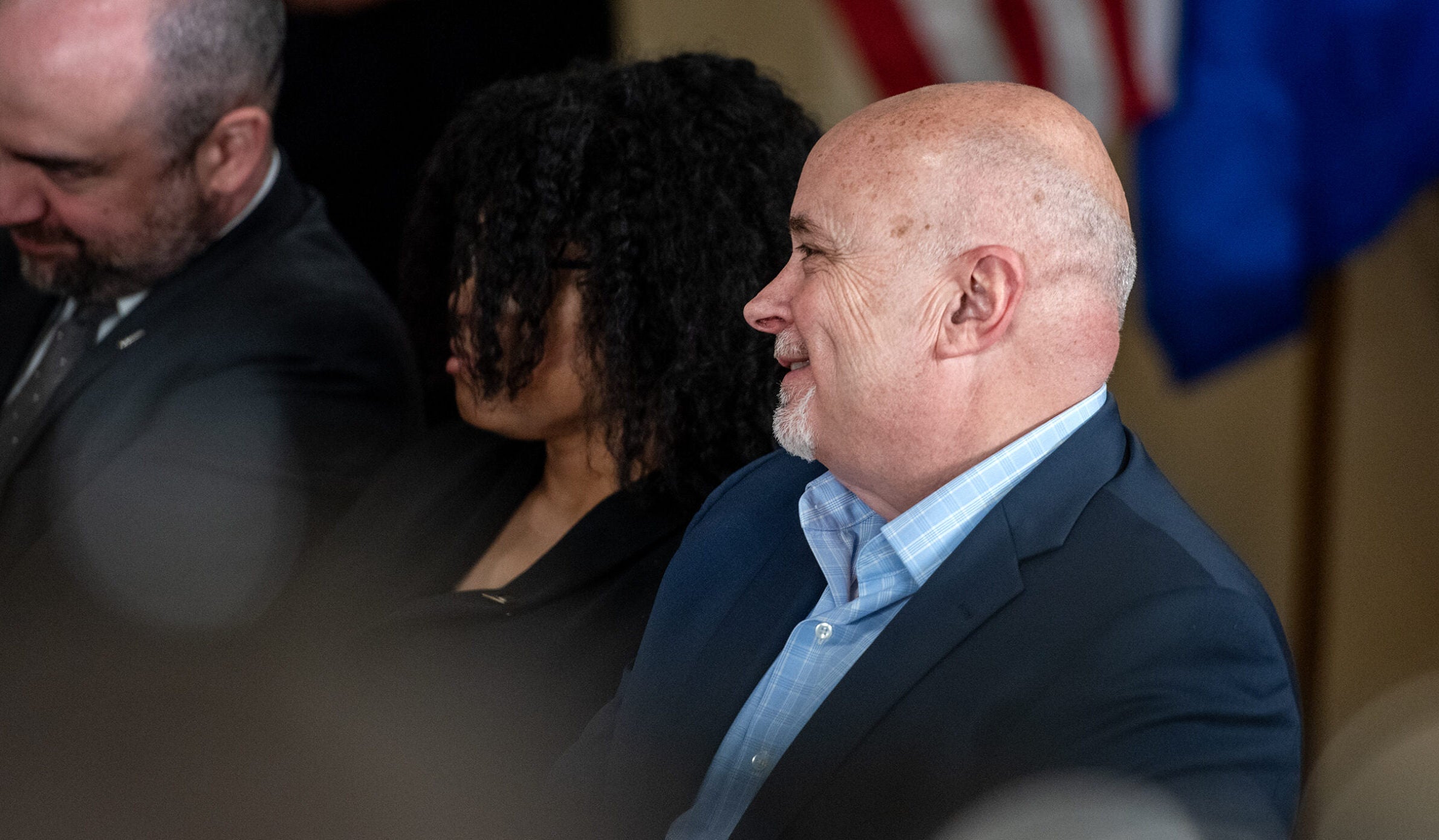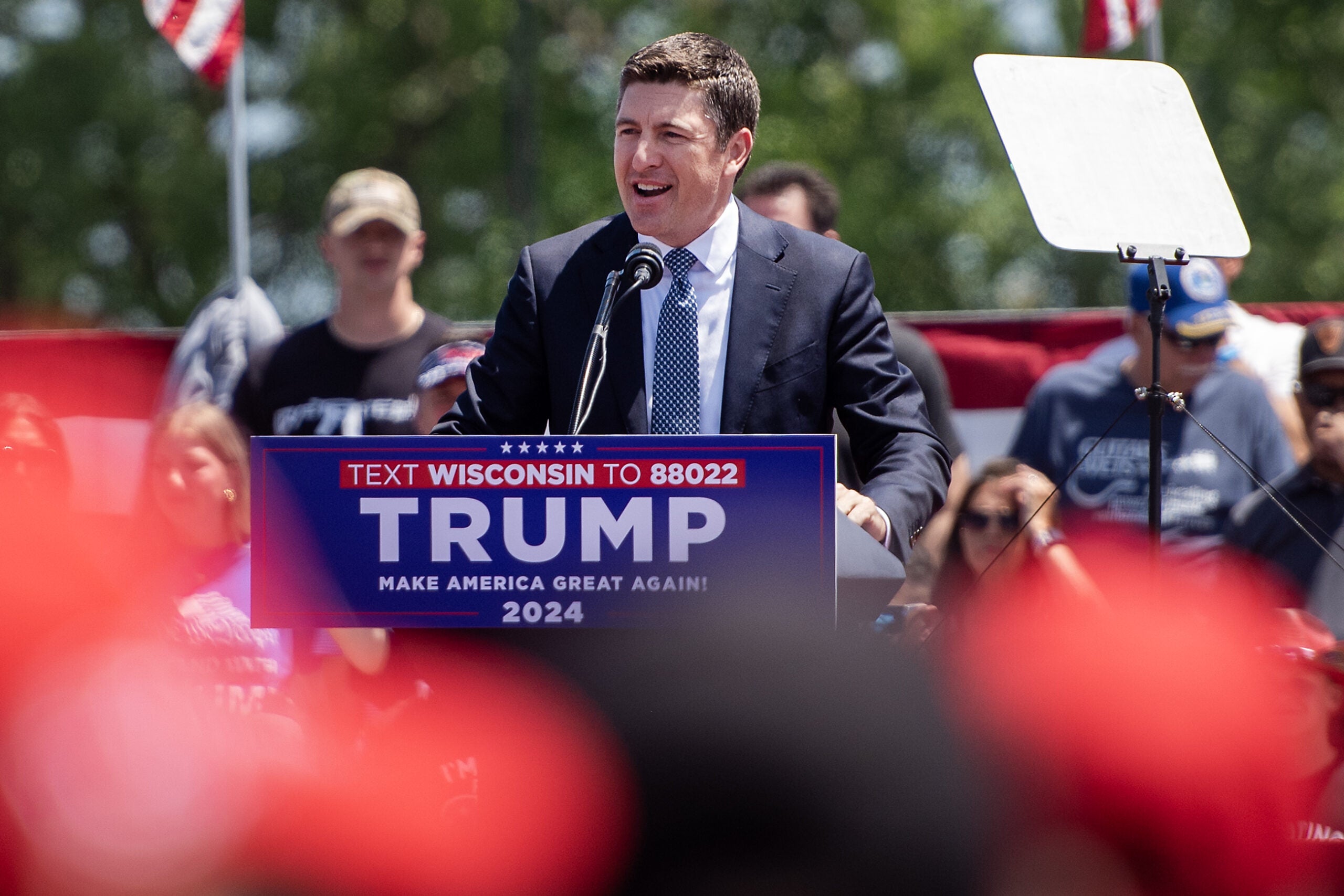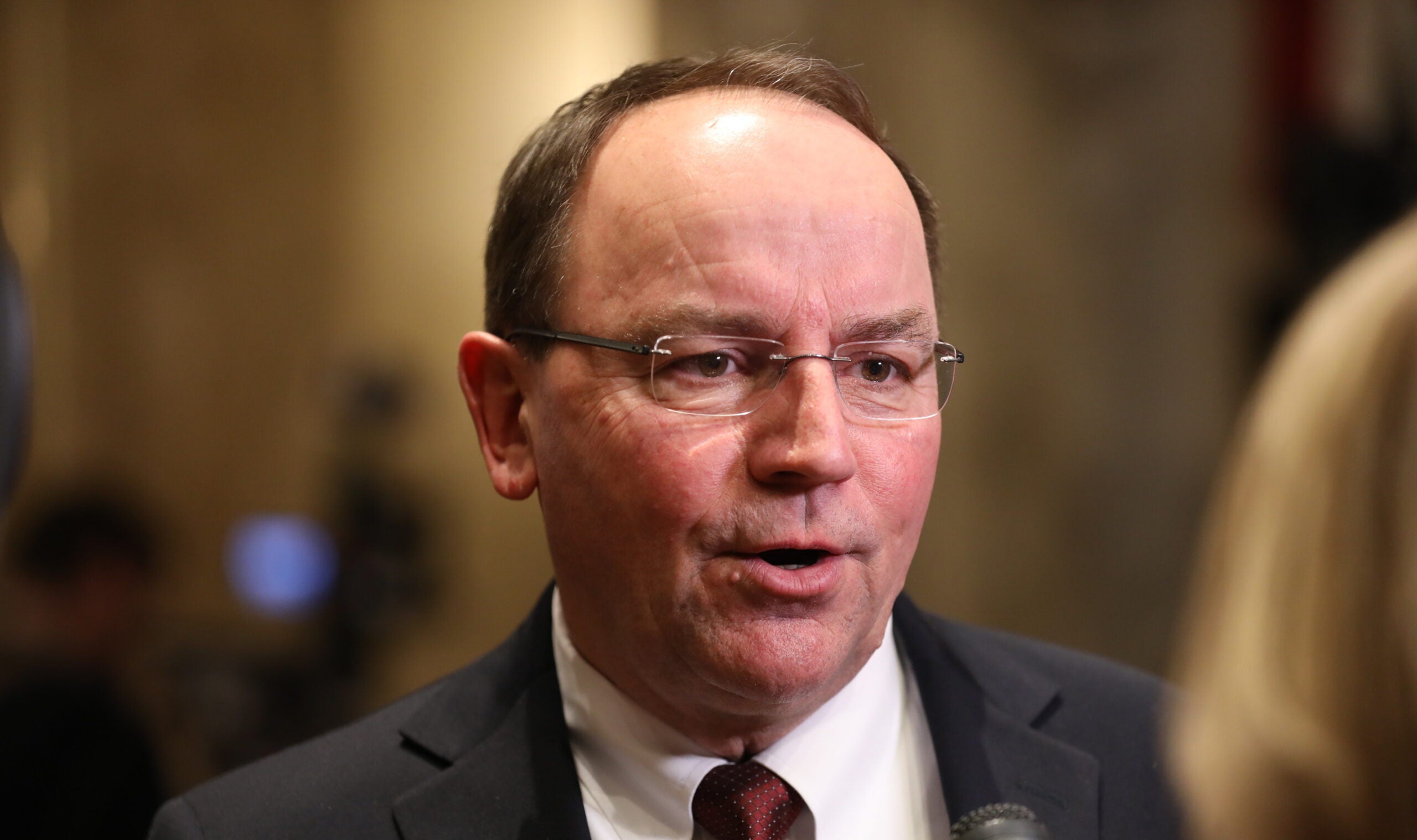U.S. Rep. Tom Tiffany, R-Minocqua, says he supports a relief bill that would target areas impacted by COVID-19 and criticized Democratic aid packages as irresponsible as Republican and Democratic members of the Congress continue to quarrel over how to get aid to struggling Americans.
Tiffany, who won a special election in May to replace Republican U.S. Rep. Sean Duffy for Wisconsin’s 7th Congressional District seat, is heading into a rematch with Democratic challenger Tricia Zunker, D-Wausau, a Ho-Chunk Nation Supreme Court Justice and president of the Wausau Board of Education. Tiffany beat Zunker by about 28,000 votes in May.
In an interview with Kate Archer Kent on WPR’s “The Morning Show,” Tiffany said one of his “greatest disappointments” in his first five months in office is that he believes leadership in the U.S. House of Representatives is not taking the coronavirus pandemic seriously.
Stay informed on the latest news
Sign up for WPR’s email newsletter.
This interview has been edited for brevity and clarity.
Kate Archer Kent: Let’s start with COVID-19. The coronavirus activity is labeled as “very high” in all the counties that you represent, except for three that are labeled “high with cases unchanged.” What should the federal government be doing to bring the pandemic under control?
Tom Tiffany: We had very low instances of the virus throughout the summer. And now it has picked up here through the fall.
One of the things that we could do at the federal level right now is pass a bill that we Republicans in the House put forth. It’s the Paycheck Protection Plan extension that would put out an additional $138 billion to help businesses, individuals, industries, people that are working — it would help them to be able to get through this period of time, especially the hospitality industry. Restaurants and hotels have been hit particularly hard. And this bill would address that to a certain extent, but it would be targeted and use existing dollars that are already authorized.
My message is the virus is real and you better take it seriously. Do those primary things that our mothers used to tell us — stay home when you’re sick, wash your hands. As someone who is a former hospitality business owner with a restaurant, I know how important good hygiene is. And when you’re out in public in a place that requires a mask, wear a mask.
KAK: But, you’ve held indoor campaign events without requiring people to socially distance or wear a mask.
TT: Actually, I do social distance. And when you cite those things on social media, I am speaking to groups and I do not wear a mask when I’m speaking to a group. I’ve taken this seriously in terms of making sure to socially distance, making sure to wash hands, making sure to take those precautions when necessary.
KAK: One of the first bills you proposed in Congress would have withheld federal funding to schools that did not open for in-person instruction by Sept. 8. Given the health concerns that parents and officials are facing, why did you push for this legislation?
TT: To incentivize schools to reopen. Cold and flu season is more dangerous to kids than the coronavirus. Data is bearing out that there’s little risk by having kids back in school. We’re going to leave a generation of children behind. I see it with my daughter’s friends, where they’re really struggling with virtual learning. Fifteen percent of the kids across the county do not have a good broadband connection.
Kids with special needs are not being served well with virtual schooling. I hear it from them all the time.
KAK: Speaking of broadband, which is a huge issue in your district, what inroads are you making there to expand access?
TT: Broadband is a priority of mine. I helped foster the rural broadband program. When I was in the state Legislature, it started out at half a million dollars. Now it’s at $40 million. And I’ll be doing the same at the federal level, getting those funds that come in a variety of ways for our rural communities. My goal is to make sure everybody gets a good broadband connection.
The timeline is to get these funds here immediately. It is one of our priorities in my office in the first five months.
Wisconsin Public Radio, © Copyright 2025, Board of Regents of the University of Wisconsin System and Wisconsin Educational Communications Board.





